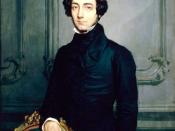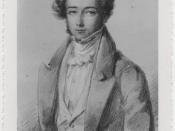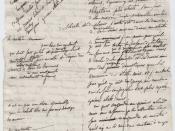In his contentious book, "The End of History and the Last Man" (1992), Francis Fukuyama argues that with the ÃÂdefeatÃÂ of the Soviet Union, and the subsequent abandonment of communism as an ideological rival to liberal democracy, mankind has made its final evolution in political theory and liberal democratic governance has been proven to be the superior model. But is FukuyamaÃÂs thesis simply a glib celebration of Western hegemony or is there credence to the idea that the inherent supremacy of the liberal democratic theory of state will inevitably displace any rival world view?In his thesis, Fukuyama contends that injustice or social problems within liberal democratic states, is not in itself proof of the failure of the ideal, but rather evidence of a flawed implementation. However, FukuyamaÃÂs declaration in the introduction to The End of History, that ÃÂthe ideal of a Liberal Democracy could not be improved onÃÂ seemingly overlooks certain contradictions within the liberal-democratic paradigm.
In fact, the contention rests precariously on the assumption that ÃÂthe twin principles of liberty and equality on which modern democracy is foundedÃÂ are symbiotic, when several prominent thinkers have in fact challenged that very assumption.
Alexis de TocquevilleÃÂs Democracy is America (1835-1840) is a somewhat ambivalent exploration of the young republic in the early nineteenth century; ambivalent because Tocqueville found aspects of American democracy to be both commendable and troubling, furthermore he found American to be a nation of paradoxes. A degree of these paradoxes derived from what he regarded to be ÃÂthe incommensurability of AmericaÃÂs founding principlesÃÂ (712), namely the somewhat conflicting traditions of secular enlightenment philosophy and Puritanism. But ultimately he found those traditions to work harmoniously and to be rather significant in the unique stability of the nation (287). What he found most disconcerting were aspects of the...


